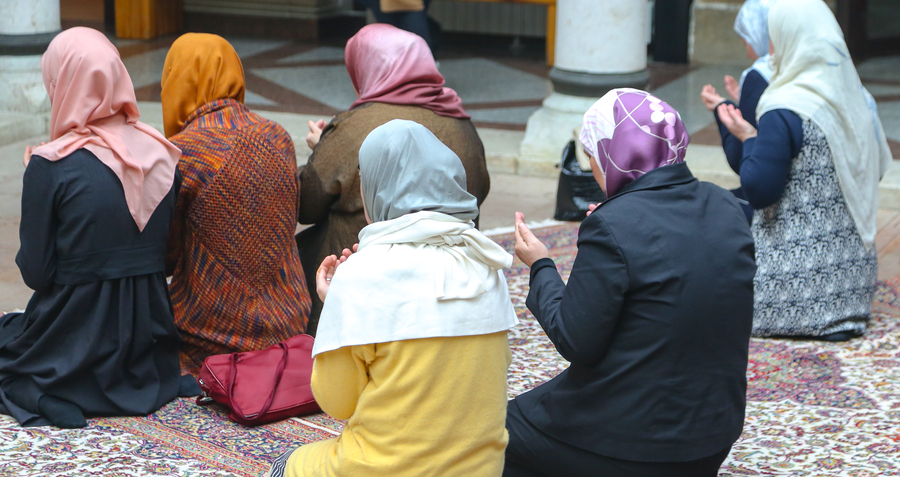What is the Proper Method for Women to Bow and Prostrate in the Prayer?
Hanafi Fiqh
Answered by Shaykh Ilyas Patel
Question
Please could you describe in detail how women should perform the ruk’u, including how much you should bend, the position of the hands and fingers.
Also in detail how women should perform the sujood. Where the elbows should be i.e. touching the floor, or on the knees – as I am really not sure I am getting this right as I have been corrected and told not to position my arms like a ‘dog’. And how raised a women’s body should be in prostration and how should the feet be placed.
I would be very grateful if you clarify these issues that are an area of great confusion and contention between traditional sisters of ahl sunnah wal jamat who are of arab and south asian origin.
Answer
In the Name of Allah, Most Gracious, Most Merciful
I hope you are fine and in the best of health and iman.
Ruku for women and positioning of hands
As for the woman, she will somewhat bend, neither taking full support nor spreading her fingers, but she will scrunch her arms and put them on her knees and bend them a little. She will not spread her forearms, as it is more concealing for her.
(Nablus, Nihaya al-Murad fi Sharh Hadiyya ibn al-Imad pg 487)
Sujud and place of elbows and feet
The woman will crouch up and attach her stomach with her forearms, as this is more concealing for her.
(Nihaya al-Murad fi Sharh Hadiyya ibn al-Amad pg 489)
It has been reported by Yazid ibn Abi Habib that the Prophet (Allah bless him and give him peace) passed by two women performing salah. He said, “when you perform prostration compress some of your body to the ground, because women are not like men in this.” [Abu Dawud, al-Marasil; Bayhaqi, al-Sunan al-Kubra]
It has been reported from Ibn Umar, when the woman sits, she should put her thigh on the other, and when she prostrates attach her stomach with her thigh as concealing as can be. Verily, Allah looks at her, saying, “O angels, I make you witness that I have forgiven her.” (Reported in Ibn Adi in his Kamil, Bayhaqi in his Sunan)
(Imam Zafar Ahmad Uthmani, I’la al-Sunan pg 19 & 25 V.3)
And Allah alone knows best
